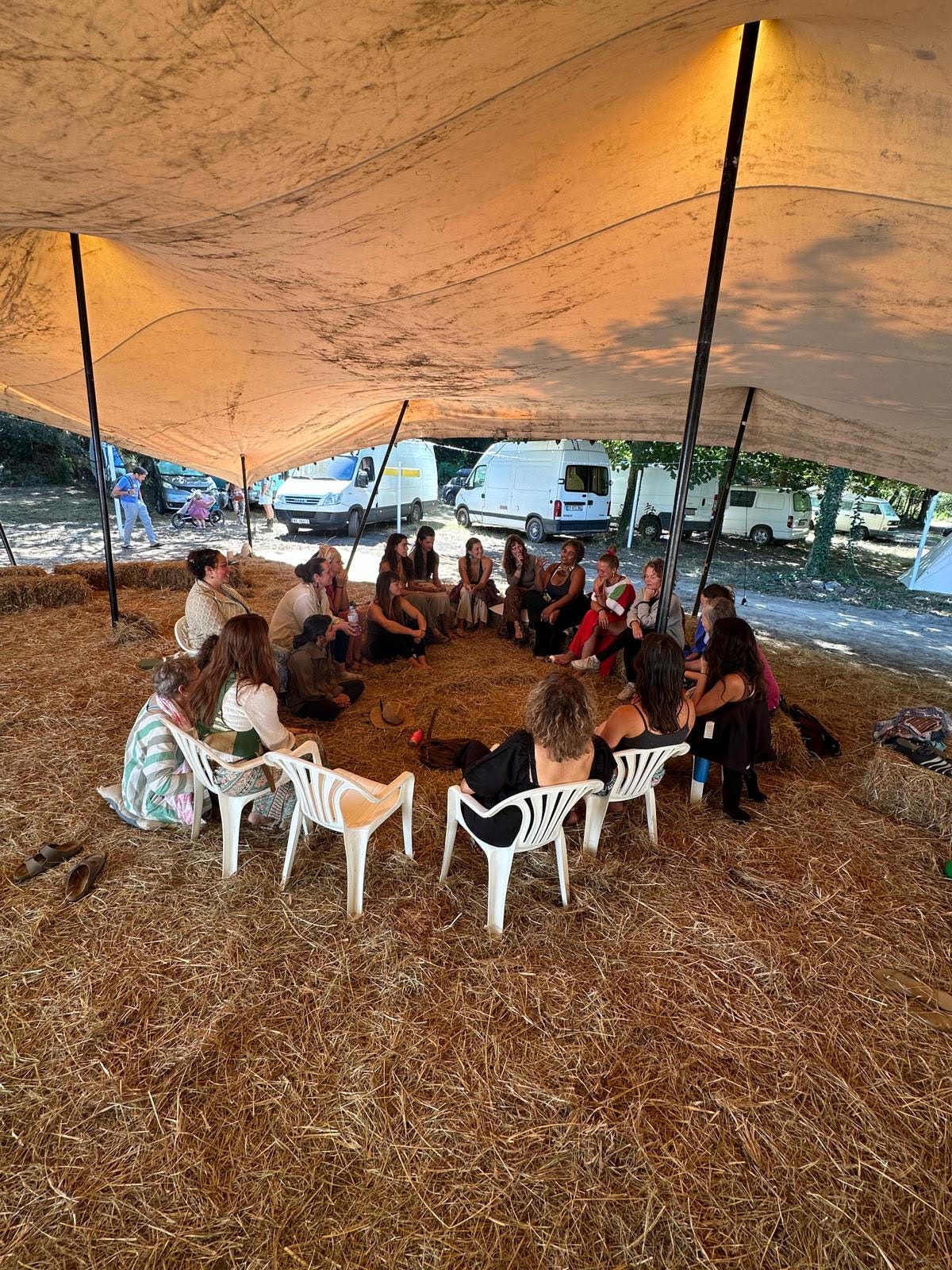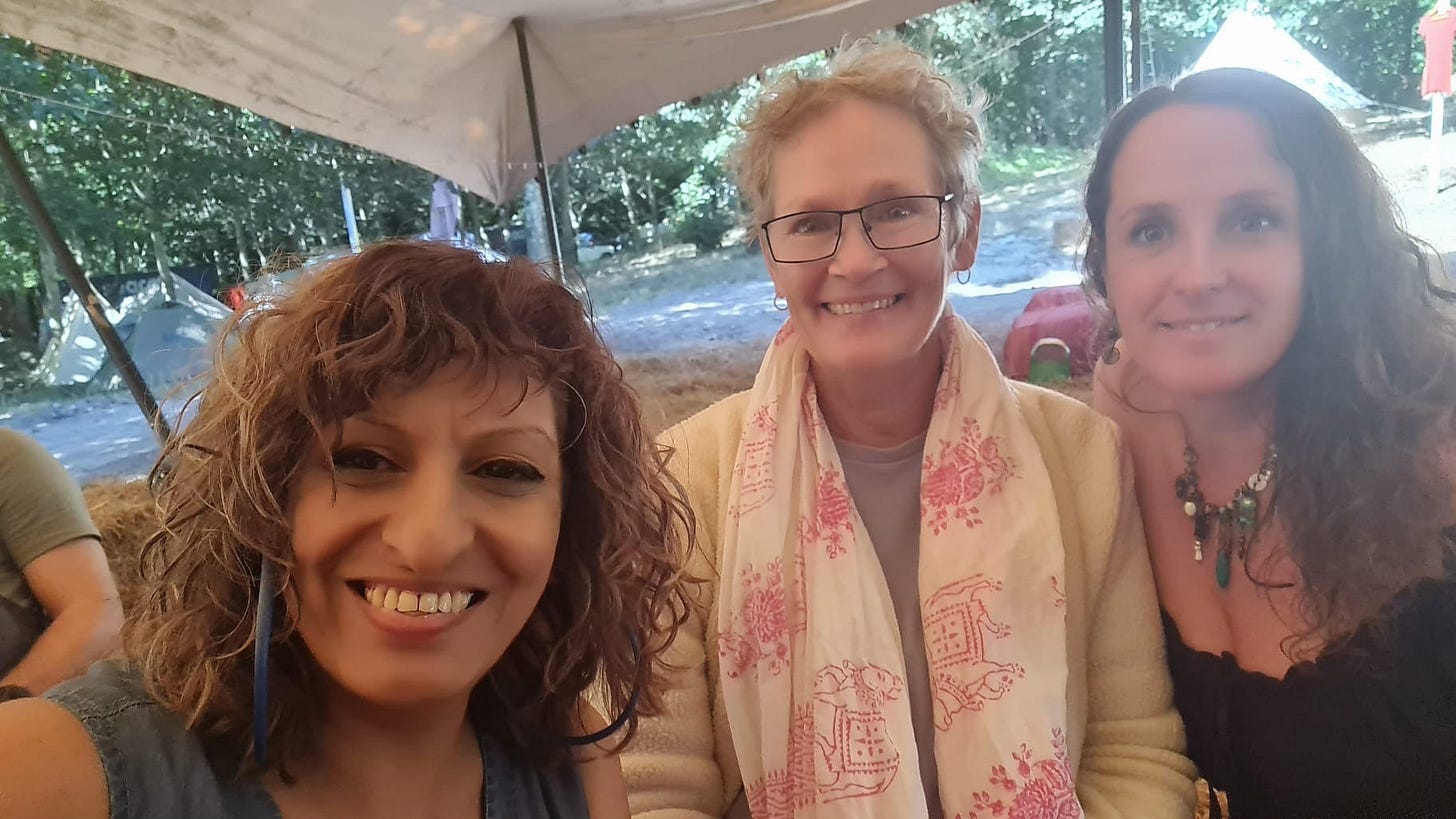Portugal's Regenerative Future is Bright
This is report written by PORTUGAL DECODED's reader Shoba Satya.
A week or so ago in the forest near Viana do Castelo in northern Portugal, five hundred scientists, visionaries, climate activists, entrepreneurs, and community builders came together from all over the world. Their purpose: “Building Solutions for Regenerative Society”. The event, called The Gathering of the Tribes, could be compared to a Rainbow Gathering for intellectuals.
Regenerative Society can’t be adequately defined in one sentence. But to begin to explain what drew all these people to Portugal, and why I wanted to go myself, let me state the obvious: Our world is facing crises on every imaginable front. If we want to find workable solutions and make our world beautiful again, we must rethink the way we do everything. This is Regenerative Thinking, and it is applied to everything from economic systems to the environment. To quote AI, “A regenerative society aims to create systems that not only sustain life but actively improve it, nurturing future generations while healing past harms.”
The attendees camped together, shared questions, insights, and expertise, and then danced till dawn. By day presentations were given. One such was given by Frequency Village from São Miguel Island in the Azores. It’s a group of visionaries, local Portuguese as well as foreign immigrants, who are building a self-sustaining eco-center for living and business. There were also large and small meetings for various interest groups, such as Feminine Stewardship, and sacred geometry. There was even the leader of a group of scientists who are designing the climate-resilient regenerative city of the near future. It’s called Masterminding Eden. Look it up.
Attending the Gathering to learn about new regenerative building technologies attracted me. Having lived in Nazaré for two years I’ve observed that, with its forest fires, earthquakes, and thousands of new immigrants, Portugal is uniquely positioned to see opportunity in this moment of climate fragility and human need. In the recent past, Portugal has built concrete and rebar apartment buildings all over the country to quickly provide housing. But many of these have reached the end of their thirty to fifty-year life cycles. They are beginning to rust and crumble and are especially vulnerable to earthquakes. Portugal needs creative, long-term, affordable solutions that safely address its climate needs and population growth. And I’m glad to report I found one.
Geoship is a company applying the same technology used to build the heat shields on rockets to building houses. It's called bioceramics. The homes they have developed withstand fires and floods, resist earthquakes and hurricanes, won’t mold, they’re nontoxic, and are 99% waste-free to build. These homes can be assembled on-site by a small team in a short time, like Legos. Between 2026 and 2036 Geoship plans to scale up to producing one million homes per year. The price is affordable and will become more so. There’s one small thing to acclimate to - they are domes. Before you decide it is not for you, let me say, that the dome shape is an effective and positive answer to housing and climate needs. People who live in domes overwhelmingly report that the experience is pleasant, safe, and comfortable.
For Portugal, which has a long and strong history of producing world-class ceramics, bioceramics is a natural choice. Although Geoship is based in California, the technology can be replicated here in small factories. In fact that flexibility is what Geoship intends to fulfill its regenerative philosophy. With Portugal’s demonstrated history of wisely changing political direction, it makes sense that Portugal seize this idea now to become an early adopter hero and the European leader in this technology.
You can get more information at geoship.is or contact me.





